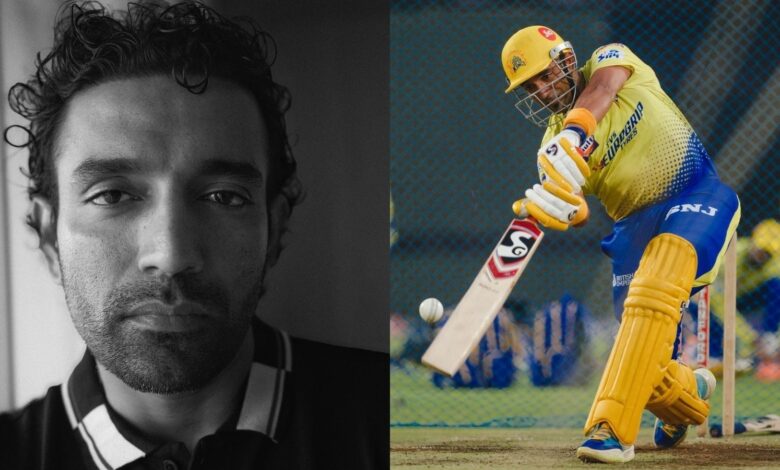Robin Uthappa, Simone Biles, Michael Phelps: Sporting success stories often come at the cost of fragile mental health

Earlier this month, English cricketer Graham Thorpe, took his own life at 55. Widow Amanda revealed the reason to be, his long-standing fight against “major depression and anxiety”. The cricketing world was left gutted with the news, but this wouldn’t be the first time a sporting legend had been lost to the dark side of mental health. Robin Uthappa opens up about his debilitating journey with depression(Photo: Instagram/robinaiyudauthappa) Thankfully, Robin Uthappa is still here to share his story. And Graham Thorpe’s struggles are what inspired the former Indian cricketer to do so. In the second episode of his series True Learnings, Robin opened up about his struggle with depression. Despite a celebrated career, he recalled hitting a point so low, that it got physically impossible for him to look in the mirror. “I remember in 2011 I was so ashamed of who I became as a human being that I couldn’t look at myself in the mirror. I went all of 2011 just not looking at myself in the mirror. I did avoid any opportunity or even an instance of me looking at myself anywhere. And I know how defeated I felt in those moments. I know how burdensome my exence had become. I know how far away from being purposeful in life”, he shared on his YouTube channel. While Robin managed to fight his demons, making it so far ahead, the same can’t be said about some other sporting legends. Aubrey Faulkner, Jack Iverson, David Bairstow, VB Chandrasekhar and David Johnson don’t even represent the tip of the iceberg. Putting down the statics and heartbreaking headlines to professional pressures appears practical. However, a study published in the British Journal of Sports Medicine, revealed that the suicide rate among college athletes doubled between 2002 and 2022. The mental health epidemic is not just restricted to the world of cricket. 28-time Olympic gold medal, swimmer Michael Phelps, admitted wanting to end his life following his second drunk driving arrest in 2014, so as to be able to contend with the hurt he was causing himself and his loved ones. He thankfully turned to therapy, and swears it when it comes to his struggles with depression and anxiety. Michael Phelps Back in 2021 during the Tokyo Olympics, 11-time Olympic medal Simone Biles withdrew from the gymnastics team finals, citing mental health reasons. At the time she recalled usually having the strength to persevere through her jitters. But this time around it was different, and felt deeper than the usual Sunday scaries — so Simone took a back seat as the team cinched a silver win. Simone now goes to therapy at least once a week for almost 2 hours to work through her traumas. Simone Biles Japanese tennis ace and 2-time Australian Open victor Naomi Osaka was much more direct about one of the contributing factors for her personal mental health struggles, something which most other athletes might agree with. “I’ve often felt that people have no regard for athletes’ mental health, and this rings very true whenever I see a press conference or partake in one. We’re often sat there and asked questions that we’ve been asked multiple times before or asked questions that bring doubt into our minds, and I’m just not going to subject myself to people that doubt me”, she detailed in a since-deleted Instagram post. Naomi Osaka Michael, Simone and Naomi aren’t alone. Half-pipe star Chloe Kim, figure skating champion Gracie Gold, basketball player Kevin Love, NBA player Tacko Fall, gymnast Laurie Hernandez, sprinter and now Olympic gold medal Noah Lyles and many more eminent names have in the past, voiced their own recurring struggles with mental health. Taking perspective: How is the mental health epidemic different for the athlete community?Winning an international honour and the ensuing victory lap make for very short-lived moments in the face of the grueling everyday routines that athletes need to put their bodies through. The pressures of the next big display of their skill coupled with the ever-present expectations from the general public, many of whom look up to them and some of whom are just waiting for them to trip up, understandably hot-boxes the athlete’s psyche. In this regard, Dr. Arushi Dewan, clinical psycholog and founder of Coping Keys, sheds light on the glaring pitfalls of being a sporting champion. “Athletes function under immense amount of pressure and their inflated sense of responsibility to win for the nation they represent might largely impact one’s state of emotional well being”, she says. Dr. Dewan also makes a correlation between how an athlete’s latest performance gets directly tied into how they gauge their self-worth in a recurring, destructive cycle. “Most of the celebrities and athletes make their self worth dependent on their performance and results which puts them in a cycle of self-criticism and guilt if they don’t achieve their desired performance results which causes discontentment with self eventually leading to feelings of depression”, she reflects. What then, is the solution? “You can chose to delay jumping in cold waters thinking it will turn warmer for you one day — that would never happen —cold waters would remain cold. Delaying the process of seeking mental health support will not make the symptoms of depression go away. You will have to initiate therapy to help yourself effectively deal with (it)”, Dr. Dewan concluded.







